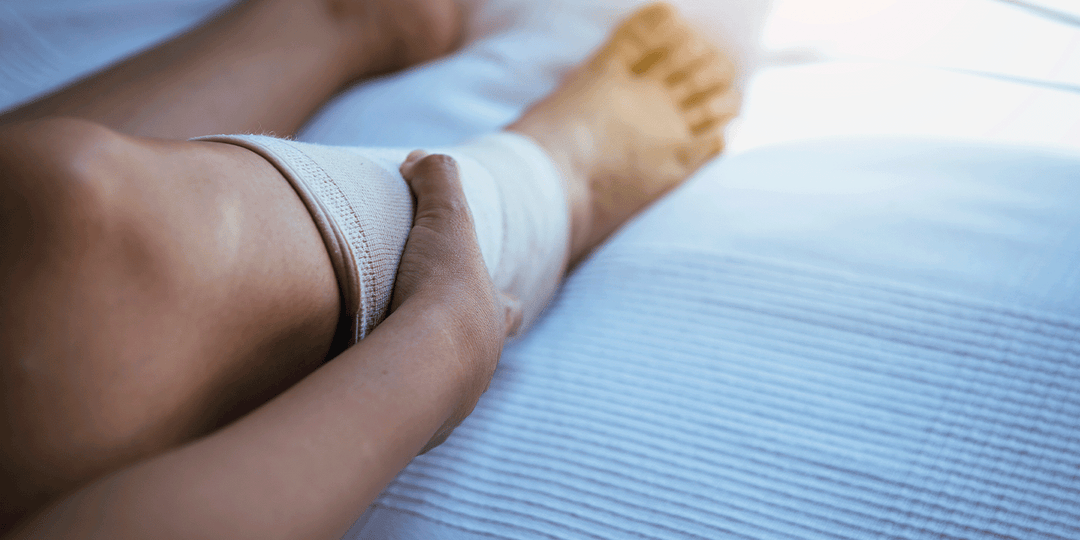Best Nutrition for Treating Bed Sores and Wounds Naturally
When people suffer with wounds that aren’t healing, they want to know, “what else can I do to promote healing naturally?”
Wound healing can be a complex process, but there is one important thing that you can do to support your body in healing wounds faster - get the right nutrition.
Getting the right nutrition, particularly high-quality protein, is essential for faster wound healing. Protein gives you the building blocks for new tissue growth and repair, and it plays a critical role in maintaining the body's immune function.
Getting high-quality protein, several times each day, is the key for healing bed sores and other wounds naturally.
Why is protein so important for wound healing?
Proteins are made up of amino acids. They are like building blocks. You can think of protein amino acids like Legos™. They are essential for building and repairing tissue. When you have a wound, your body needs more protein than normal to rebuild and repair tissue.
Protein actually helps to stimulate the growth of new cells and provides some of the energy needed for the healing process.
Your immune system and preventing infection.
Protein is also essential for maintaining a healthy immune system. A healthy immune system is critical for preventing infections while you’re healing. Protein helps your body balance fluids and reduce swelling which promotes healing.
Bed Sores and protein
Pressure injuries are sometimes referred to as bed sores. They can happen when a person is very sick or disabled, and can’t move or get out of bed very much. These sores are normally seen on parts of the body that are under pressure, such as the buttocks, hips, and feet. Bed sores can be painful and difficult to treat, and they can lead to serious infections if left untreated.
Nutrition for treating pressure injuries and wounds naturally
When a person has a pressure injury or bed sore, their body needs more protein than usual to repair the damaged tissue. Getting the right amount of protein each day can help to stimulate the growth of new tissue, reduce inflammation, and support the body's immune function.
What are the best sources of protein for wound healing?
Milk, eggs, fish, poultry, beef and pork are all very good sources of protein, but the whey protein isolate in UNJURY® Protein tops them all. UNJURY® Protein has a perfect amino acid score, 100 on the PDCAAS scale, and provides all of the building blocks in the right proportions for tissue repair.
If you prefer plant-based protein, soy, pea, quinoa, lentils, and chickpeas are a good place to start, but it’s important to note that not all protein sources are created equal. Animal-based protein sources are much higher in essential amino acids, which are the building blocks for new tissue growth. Plant-based proteins will require combining a variety of sources so that all essential amino acids are available in the right amounts for healing. Work with your dietitian to create a protein plan if you can’t have animal protein in your diet.
Here's why doctors and dietitians recommend UNJURY® Protein for healing
Whey protein is the best protein powder to use to promote muscle growth and repair, and UNJURY® Protein is the highest quality whey protein available – anywhere. Patients love it because it tastes great.
Whey protein is a complete protein, meaning that it contains all essential amino acids required for building and repairing tissues. Whey protein is rich in leucine which helps repair muscle and glutamine which supports the immune system.
Pea protein is a plant-based protein powder that is a good option for vegetarians and vegans. Pea protein is high in arginine, an amino acid that has been shown to promote wound healing.
Remember: a balanced, nutrient dense diet that is high in protein is the best way to promote natural healing.
Get better faster with UNJURY®!
1Demling RH. Nutrition, anabolism, and the wound healing process: an overview. Eplasty. 2009;9:e9. Epub 2009 Feb 3. PMID: 19274069; PMCID: PMC2642618.
2Ebaid, H., Salem, A., Sayed, A. et al. Whey protein enhances normal inflammatory responses during cutaneous wound healing in diabetic rats. Lipids Health Dis 10, 235 (2011). https://doi.org/10.1186/1476-511X-10-235










